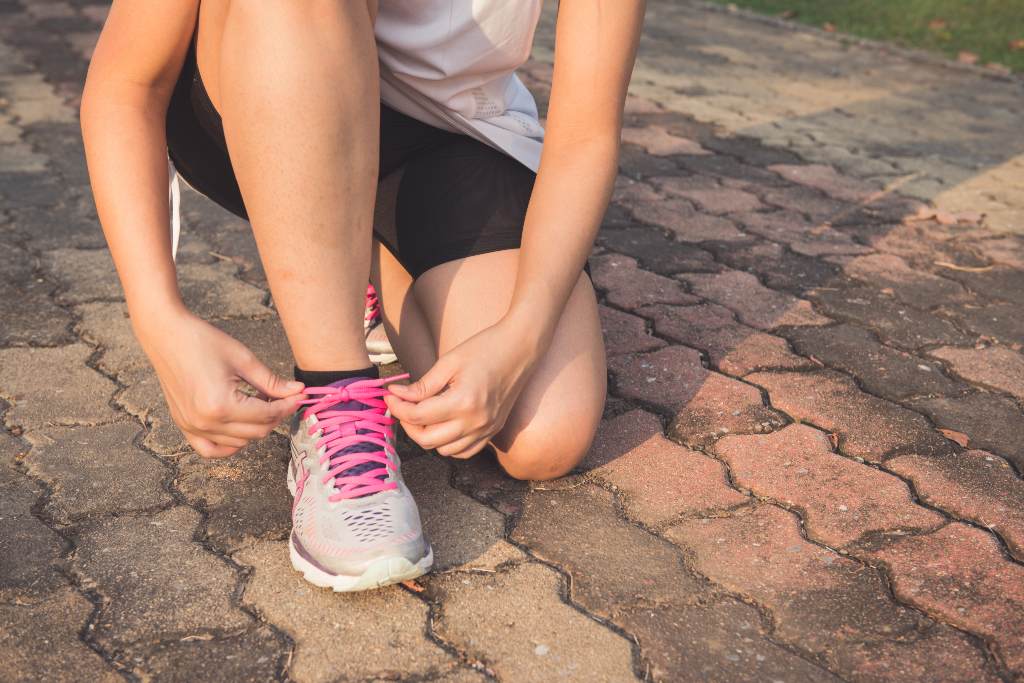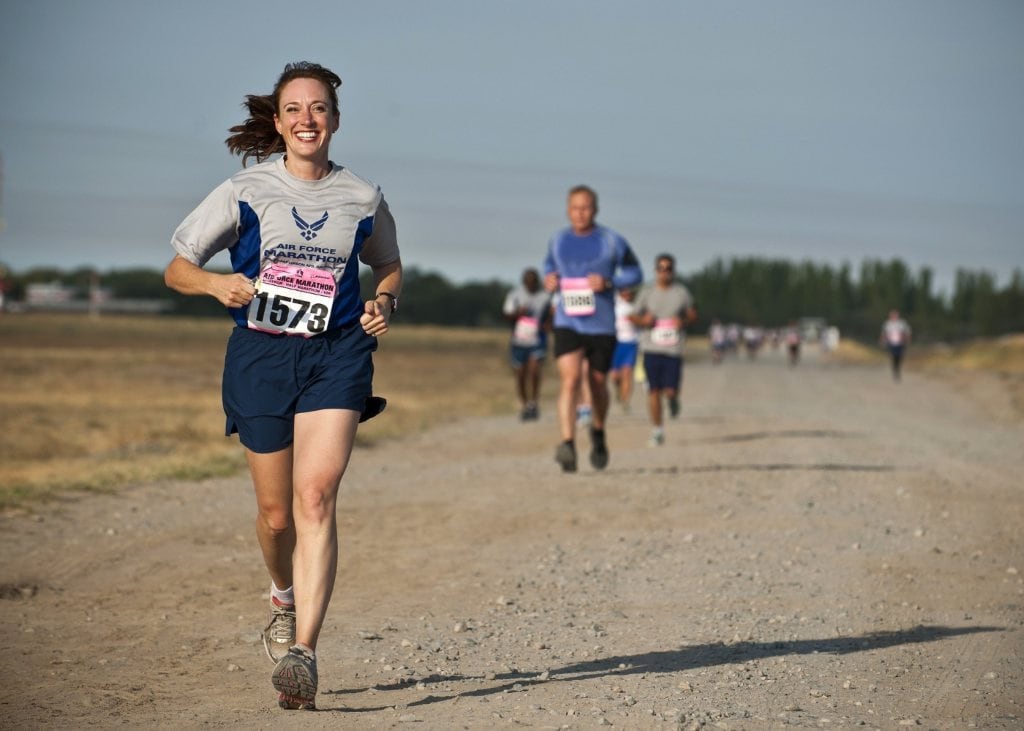
Running with IBS – 5 tips for raceday
In a month, I will be doing my first long distance race ever. I have been running since 2010 and I did 5 and 10 kilometres races several times, but I am not a fanatic runner. In the beginning of this year a few colleagues challenged me to join the half marathon of Eindhoven and I decided to go for it and start training. Almost none of my colleagues are actually going to do the run anymore, but I am still going to do it. If I promise myself that I am going to do something, there is no way I am letting myself get away with not doing it, so on the 14th of October I will be at the start of my first half marathon. Some time ago, I asked on Instagram if you would be interested in some blogs about running with IBS and I got a lot of positive responses on that. Therefore, I share 5 tips for running a race with IBS with you today!
My biggest fear during a race? That my stomach will get upset, of course. Unfortunately, when you have IBS, you can never be sure that your stomach will be fine on a certain day. So also not on race day. However, there are a few things that you can do, to make the chance that you will end up feeling bad on race day as small as possible. These are the things that I am going to do for a calm belly during my half marathon:
1.Use your training runs to test what works best for you
Eating. I prefer not to eat at all before or during my run because that gives me the smallest chance on an upset stomach during my run. When I am training, I often do my run in the morning before breakfast or I only eat (half) a banana before my run. In the morning, my stomach is usually the calmest and I prefer running without a lot of food in my belly. But when you are running distances longer than 10 km, it is smart to eat something.
Because you don’t want to get an upset stomach during your race, it is smart to test different foods before and during your training. Every person reacts different to different foods and you want to find meals that work best for you. So, go and test different foods. Test a few meals that you eat before your run and see how your stomach reacts to it. If something goes well several times in a row, the chance is big that you have find something that you can eat before your race.
A lot of people swear by drinking a cup of coffee right before their race. Caffeine can be irritating for your stomach, so if you want to run coffee before your race, it is smart to test this during your training too.
You can also test taking energy gels or sweets during your long-distance trainings. Make sure to check the ingredients of the gels and sweets because many of them are not low FODMAP. An ingredient that is often used in gels in maltodextrin. I read different information about maltodextrin being low FODMAP or not. FODMAP Foodies (a Dutch FODMAP blog) describe on their blog that gels made with maltodextrin are ok on a low FODMAP diet. But as maltodextrine doesn’t have an official FODMAP green light (as far as I am aware), I would also suggest to test during a training how you react to the gels. I am currently in the process of testing a few Dutch brands of sport gels that are made with maltodextrin and don’t have any other high FODMAP ingredients.
Again: don’t use these gels during a race if you haven’t tested them before in a training.

2. Eat low FODMAP and not too many fibres
Try to eat something before the run that is, of course, strictly low FODMAP (so not something that is limited low FODMAP) and does not contain too many fibres. Usually you want to eat fibre-rich foods, but close to a run this is not smart because it might cause you to have to run to the toilet.
Don’t eat too much before you start your race. I usually eat my last meal about 4 hours before the race. My favourites are:
- 2 – 3 slices of low FODMAP white bread with strawberry jam
- 2 pancakes made with gluten-free flour and lactose-free milk with strawberry jam
About two hours before the run, I usually eat a medium yellow banana.
It is best to eat a meal that is high in carbs, you will need them during your race. Be careful with fats. Eating too much fat before a run can also give you stomach problems.
3. Take it easy in the week before your run
Try to eat as strictly low FODMAP as possible in the week (or at least the last 3-4 days) before your race. This is something that I find very difficult sometimes, but it is very important if you want to feel good during your race. I am going to try to avoid eating out in the week before my race. When I am eating out or at somebody else’s place, I cannot control that what I eat is 100% low FODMAP and if something goes wrong, it can give me stomach problems for several days. Then I rather be sure and prepare my own meals in the week before my race.

4. Drink enough during the race
Don’t drink too much before your race, otherwise you probably have to go to the toilet right after you started running. They often advise to drink up to half an hour before your run and then go to the toilet for the last time. Do make sure that you run enough during the run. Use the drink posts and if necessary bring your own bottle. To avoid stomach problems, it is important that you drink enough.
5. Don’t be too hard on yourself
A run can go different than you hoped and especially with IBS, difficult situations can happen. For me, it sometimes happens that I feel super bloated during a run and that the run doesn’t go as I want or that I even have to walk during my run. Just know that something like that can also happen during a race. You can try to avoid it as much as possible by taking it easy in the week before your run, but you can never have 100% control over it. Nerves before the run can also cause stomach problems. Just try to not be too hard on yourself when something happens and listen to your body. You will probably feel what is possible and what isn’t!
This were my 5 tips for doing a race with IBS! I hope that you got something out of it. Would you like to read some more blogs about running?
